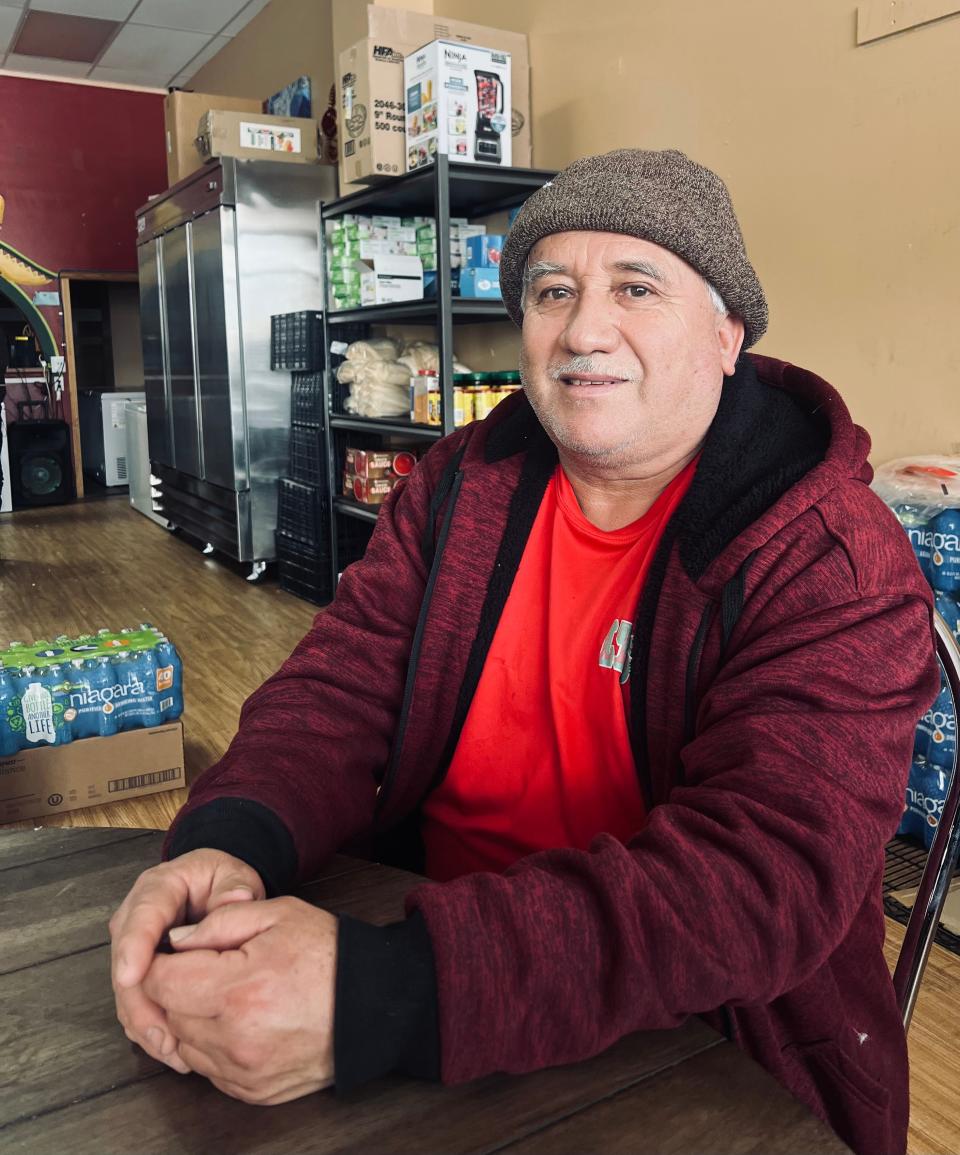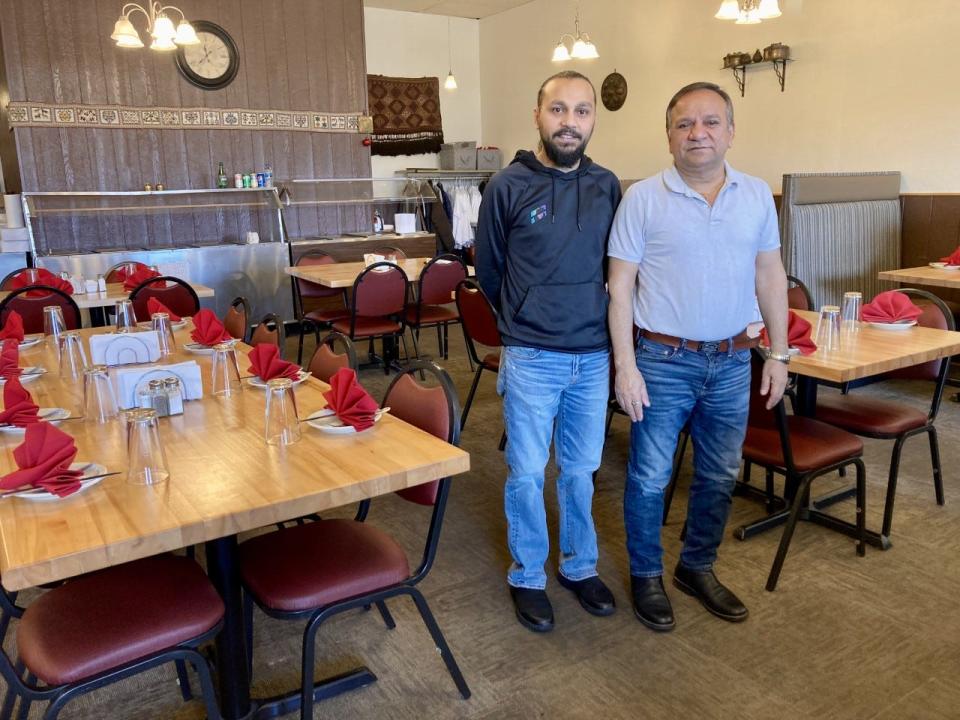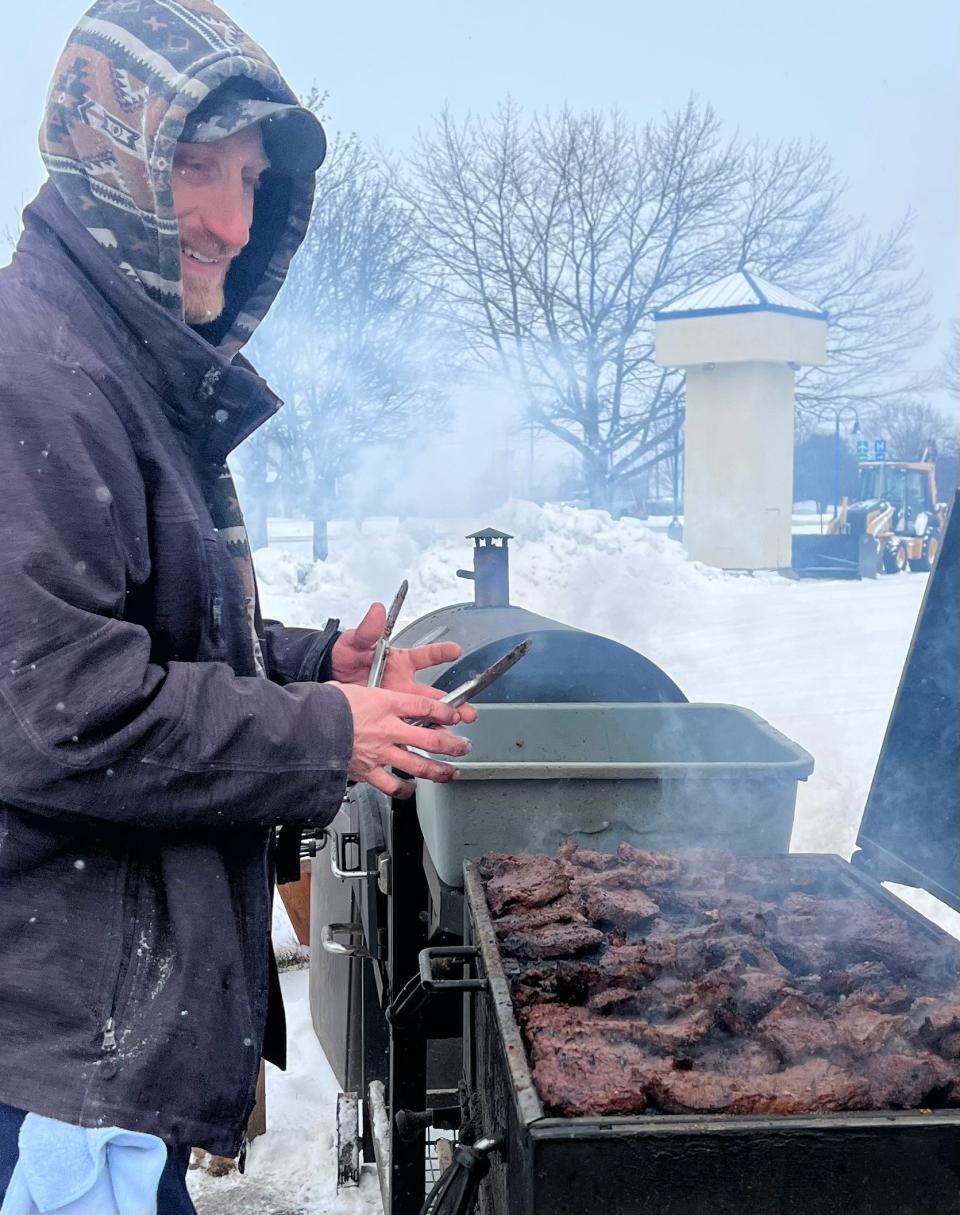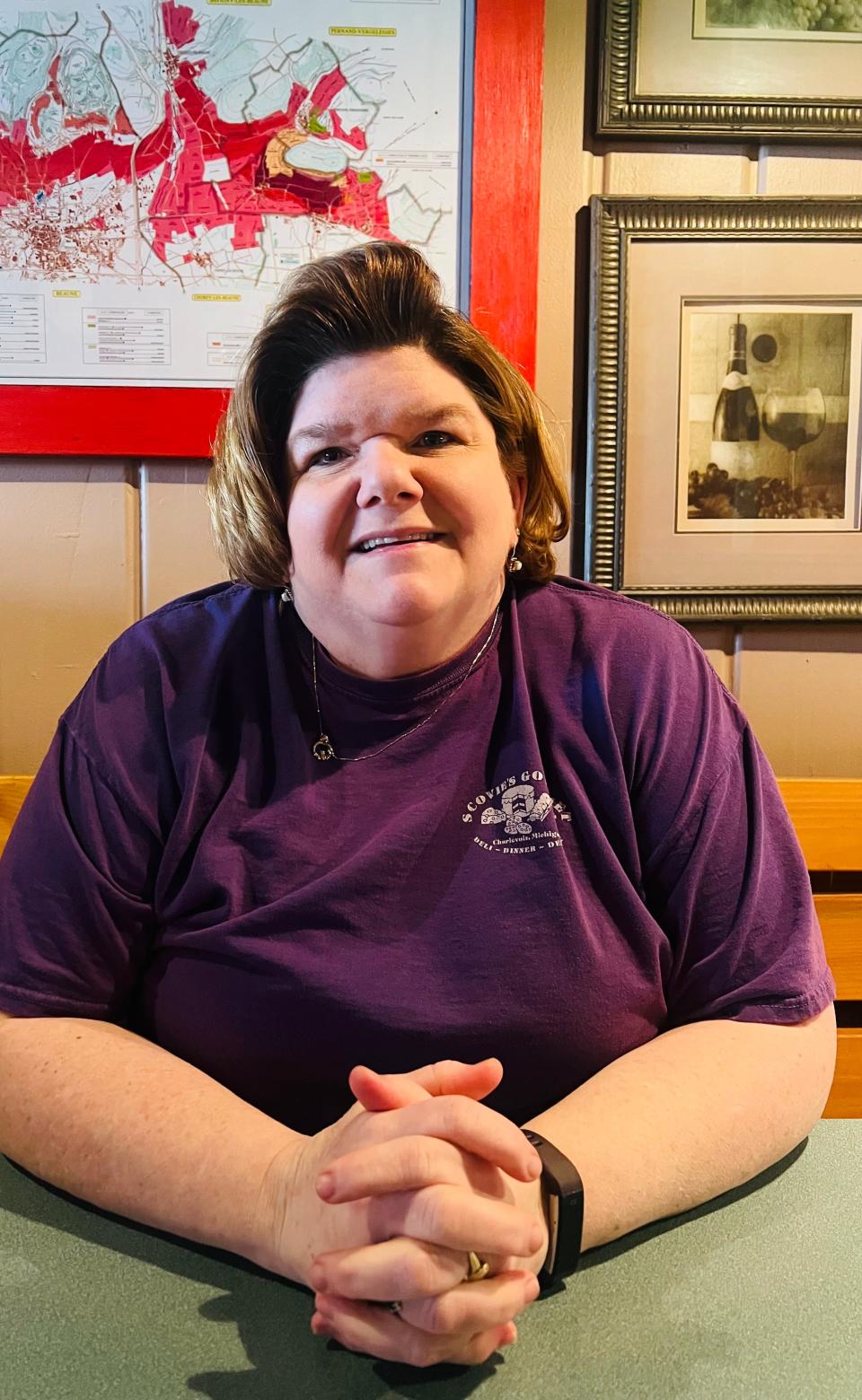Tight-knit families, perseverance keep Michigan restaurants alive as inflation strikes
Like a good bowl of gumbo, the recipe for a successful restaurant can be varied and unique, each with a distinctive flare.
Although no one set of ingredients could have protected restaurant owners from the effects of COVID-19 — which included, among other things, a slashed customer base and skyrocketing supply prices — those that survived and continue to thrive have strong similarities.
Owners, managers and staffers filled the gaps with long hours, enhanced adaptation and year-round customer service.
For example, when bread shortages hit grocery stores, the owners at Gildas' Lake Street Bakery in Boyne City pivoted away from croissants and crepes and began producing more loaves of bread for customers, who often stood in lines stretching down the street to purchase.
“We did what we could to fill the voids we noticed in the grocery stores,” said co-owner Tara Ostrum-Berrou. “We were actually very busy during that time.”
When he couldn't retain employees due to a lack of affordable housing in the area, LT's Tacos owner Benito Vasquez purchased a small home in Charlevoix where his employees could live. If they need a ride, he provides it — also combatting the area's lack of affordable transportation.

Vi Keller, owner at Scovie’s Gourmet in Charlevoix, completely changed her service structure, having customers order from a menu in front before sitting down. She's only now thinking of switching back.
“This helped tremendously in dealing with our staffing problems," Keller said. "(It) allowed us to be able to serve people."
And when time wasn't on their side opening Aamchi Mumbai in Petoskey in January 2020, owner Bhimlal Basel and his son Yuvraj pivoted to take-out.
In 2017, Bhimlal opened Indian Masala in Grand Rapids. The restaurant is run by his oldest son. He opened Aamchi Mumbai for Yuvraj to manage. But just weeks after opening, an executive order from Gov. Gretchen Whitmer forced the business to shutter its dining room.
“It was financially a little hard for me,” Bhimlal said. “I (had) a lot of employees and we rent two apartments for the employees and suddenly business is closed and it was very tough (at) that time. I don't know what to do, how I can handle all this situation, then I figured out — it's not only me.”

Bhimlal learned the federal government was offering relief money, but Aamchi Mumbai didn’t qualify because the restaurant didn't have two years of tax returns to provide. The business was able to get about $3,000 in relief from the state — but the rest was up to them.
Aamchi Mumbai began to offer take-out from 4-9 p.m. They took orders and payment over the phone and put tables outside for a limited number of customers to use.
When restaurants were allowed to reopen their dining rooms to 25 percent occupancy, Bhimlal and Yuvraj continued doing take-out to conserve staff. By the time restaurants were allowed to operate at 50 percent capacity, Aamchi Mumbai had enough staff — but the restaurant didn’t fully reopen its dining room until November 2022.
Despite its rocky start, Aamchi Mumbai has built a loyal customer base in Petoskey, and today is open for dine-in and take-out.
When ingredients cost more, do restaurants up their prices?
More than ever before, restaurant owners say, they're being challenged by inflation. The ingredients and supplies they once ordered cost more, and it's hard not sharing some of that upcharge with customers.
According to the National Restaurant Association, wholesale food prices are up 13 percent. Labor costs are also rising, as workers face higher prices for utilities, rent and groceries.
Jane Cutter, co-owner of Cheboygan Coffee Roasters, said rising costs were factored into her business plan when the roastery opened in August.
“When I wrote the business plan, I absolutely expected the worst," she said. "I didn’t know that eggs were going to be worth gold, so I did have to go up on my pricing slightly for my breakfast sandwiches, but I’m still very competitive.”

The company's breakfast sandwiches now cost 50 cents more, and its well-known handpies were dropped from the menu for the winter months because they required too much staff support and expense to make.
“I will bring those back out for spring and summer," Cutter said. "We just don't have the population base asking for it enough right now.”
One of the added costs of operating a small coffee shop is disposable drink containers. Cutter estimated she spends about $1,000 per month on paper products like cups, lids and sleeves.
“I don't think people realize just how expensive (it is) when you get a coffee in a coffee shop — you get a cup, you have a lid and you have a sleeve, and then when you have a cold drink, you've got a cup, a lid and a straw," Cutter said. "It's amazing how expensive those things are. We all just take it for granted.”
Gathering supplies is plenty stressful for Aamchi Mumbai. Because they own the only Indian restaurant in Petoskey, Bhimlal and Yuvraj must drive to Grand Rapids to buy the rice, spices and other ingredients to make their dishes.
“I’m going to be happy when winter ends,” Yuvraj said. “We can’t drive out there every week with storms and stuff like that, so we have to get the groceries up there ahead of the time. Our main concern is rice and spices that we get from downstate.”
During the slow season, a pallet of rice can last about a month — but in peak season, that same pallet will last 20-25 days, Yuvraj said.
That's not to mention the increase in cost. According to Bhimlal, a bag of onions that once cost $20 now costs as much as $65. He said, before the pandemic, the weekly cost of food was about $3,000-$4,000. But with inflation, that cost has risen to between $9,000-$11,000 per week.
“The chicken price, lamb price, seafood price go sky high,” Bhimlal said. “We increased (our prices) just twice. Now, it’s manageable because some of them going down, some of them increasing.”

Using good ol'-fashioned elbow grease
Running a successful restaurant takes an enormous amount of energy and dedication. During the pandemic, Ostrum-Berrou and her husband, Gildas, arrived at their bakery around 2 a.m. near-daily. Today, they're open five days a week, leaving one day for rest and another for prep.
Vasquez said LT's has a similar schedule.
“We serve more than 2,000 customers a week,” he said, noting the restaurant closes at 7 p.m. but he often doesn't arrive home until several hours later.
Vasquez said the pandemic helped him realize the restaurant didn't need to be open so many hours each week.
“It's good to make money but our lives are something we enjoy, too,” he said. “I had to go outside and put a closed sign up while there was still a line of people waiting to order food from us."
Subscribe:Get all your breaking news and unlimited access to our local coverage
Part of working long hours means utilizing family. Cheboygan Coffee Roasters is run by Cutter, her husband Jeff, and their two sons. Vasquez runs his restaurant with his wife and daughter. Ostrum-Berrou and her husband co-owner their bakery with Ostrum-Barrou's sister, who does most of the administrative work. And Keller's mother flies into town to wait tables whenever possible.
"The family is filling all the roles," said Charlevoix Chamber President Sarah Von Horn. "If they're unable to hire someone else, you see them doing every job ... you'll see owners at the front counter checking people out or running food. They're filling in in all the different capacities — financial, marketing, succession planning — while also providing service.”

It also comes from a love of feeding people.
By the age of 10, Gildas knew he wanted to be a baker. Growing up in France, he went to school while doing a part-time apprenticeship and learned to make crepes. Now, in Michigan, his crepes are his bakery's best-selling item.
“During the pandemic, we discovered instances where people were completely cut off — there were very few places you could go to have a conversation," Ostrum-Berrou said. "We felt like we were a place where people were excited to get out and go talk to someone face-to-face. This is what makes us happy.”
— Contact reporter Tess Ware at tware@petoskeynews.com. Follow her on Twitter @Tess_Petoskey. Contact reporter Annie Doyle at 231-675-0099 or adoyle@charlevoixcourier.com.
This article originally appeared on The Petoskey News-Review: Tight-knit families, perseverance keep Michigan restaurants alive

 Yahoo Autos
Yahoo Autos 